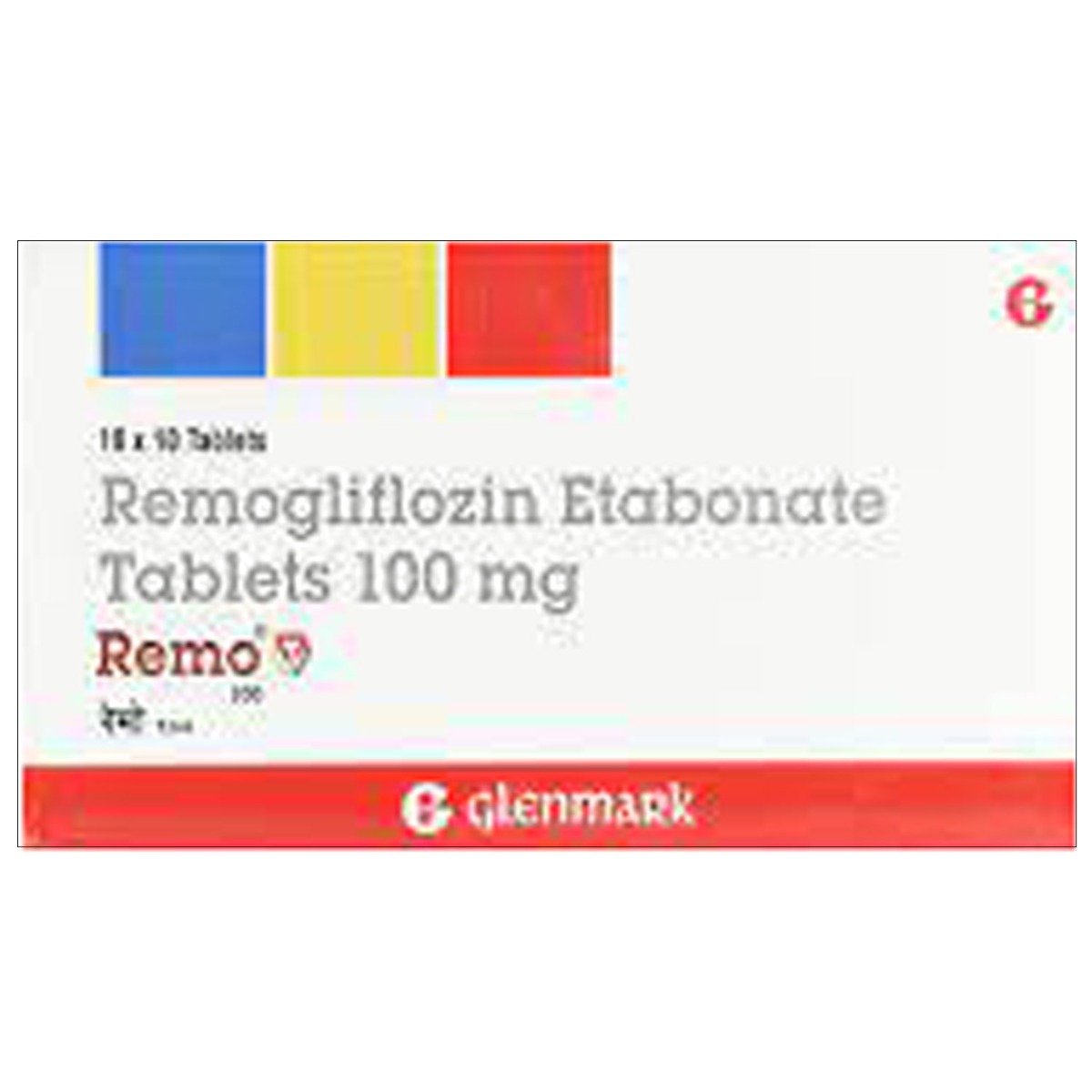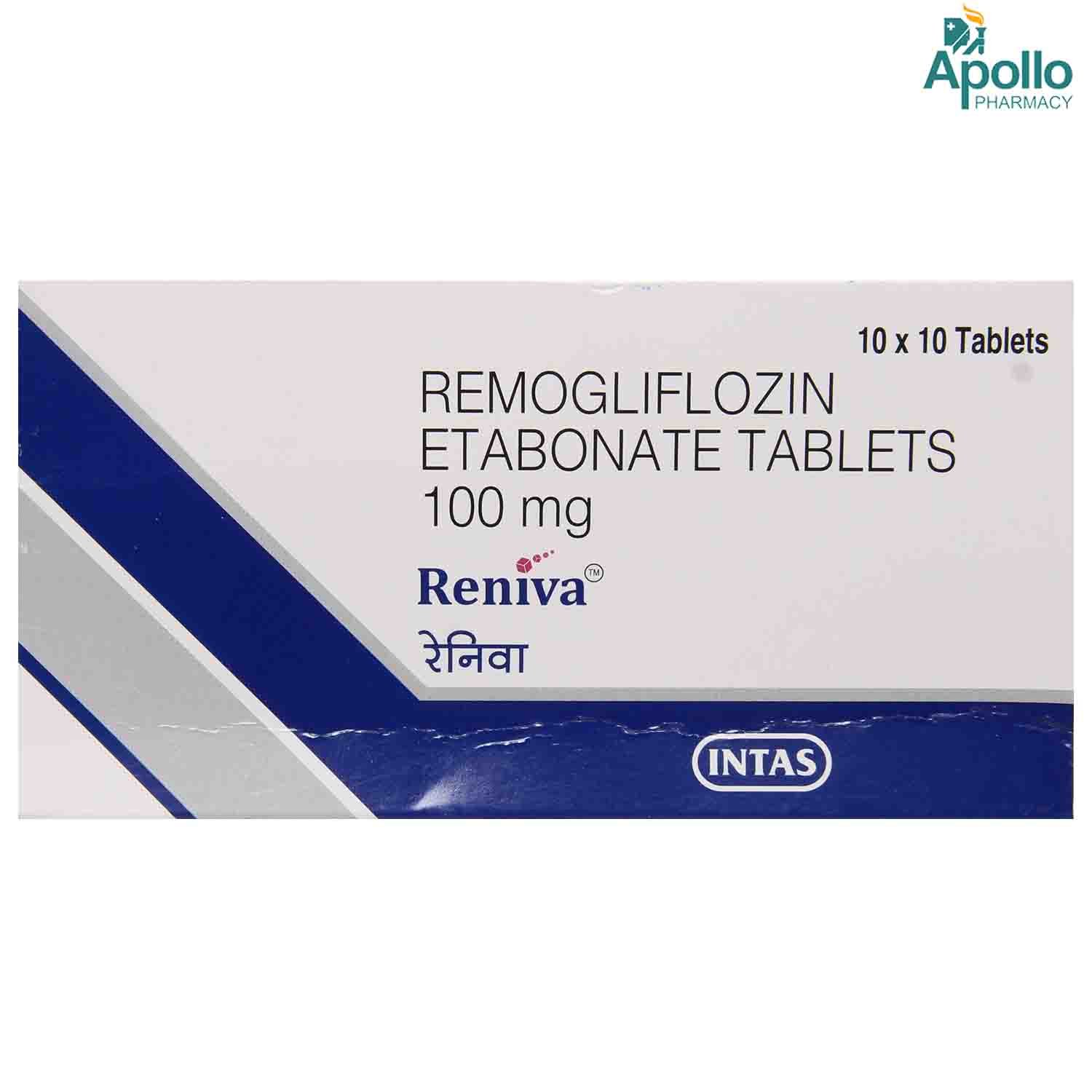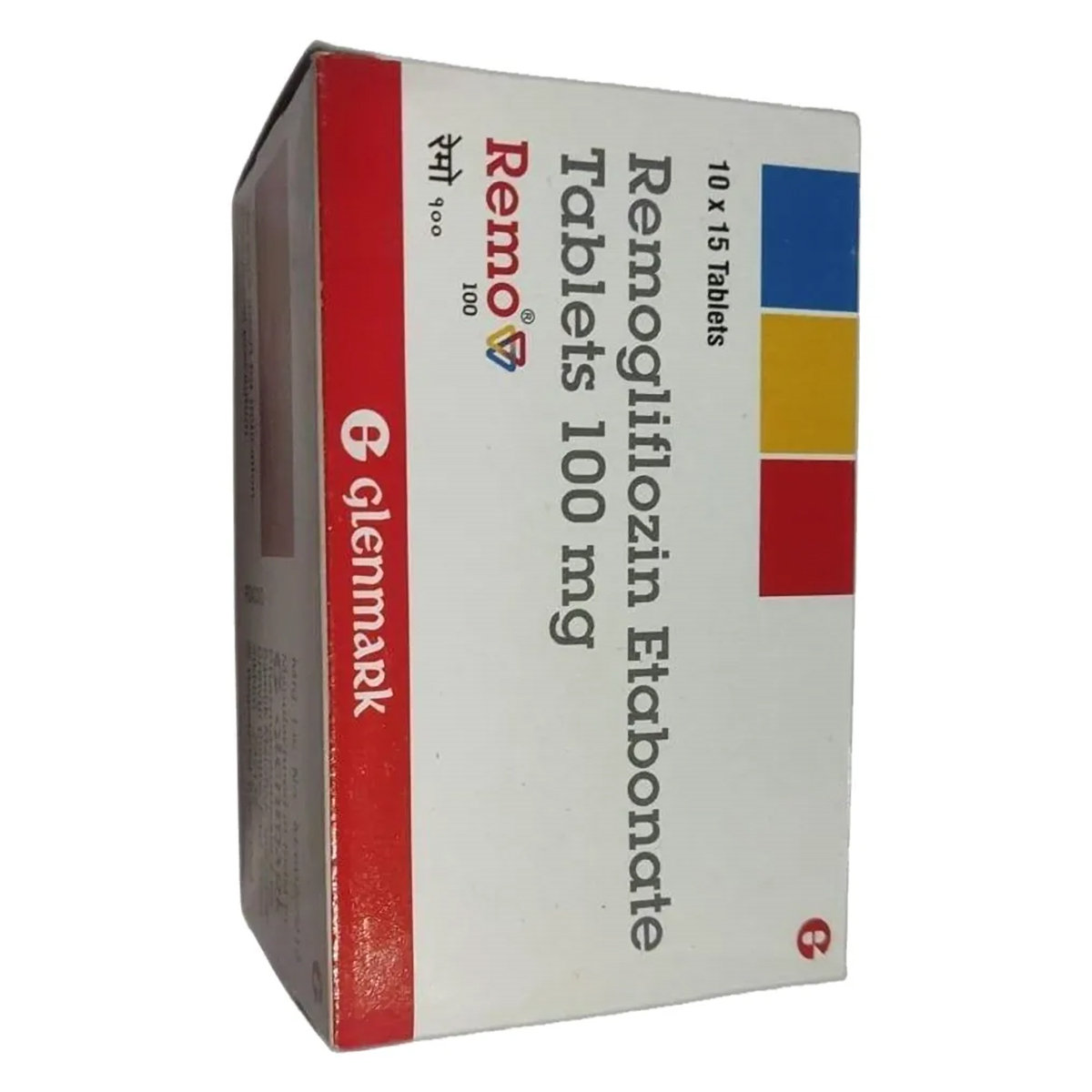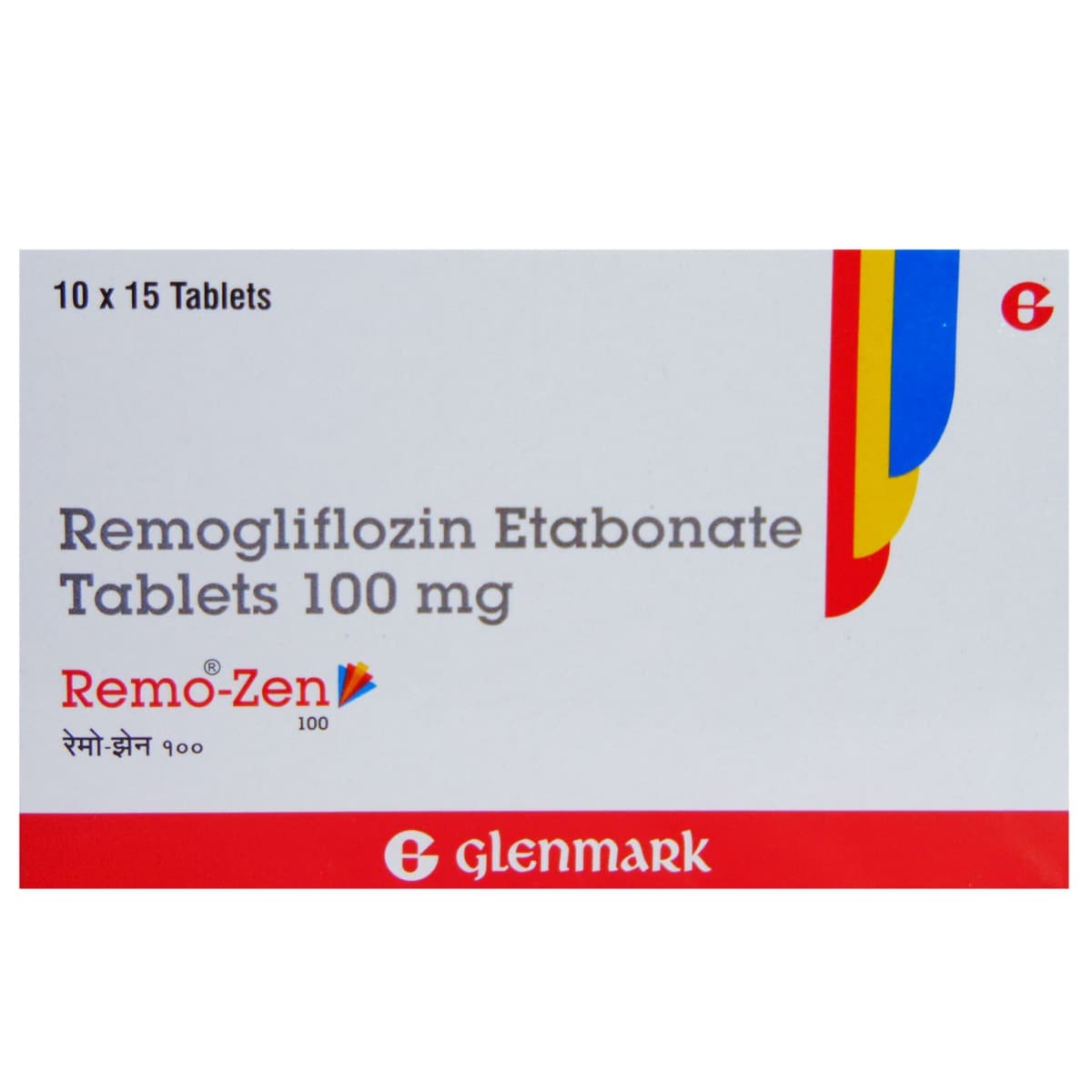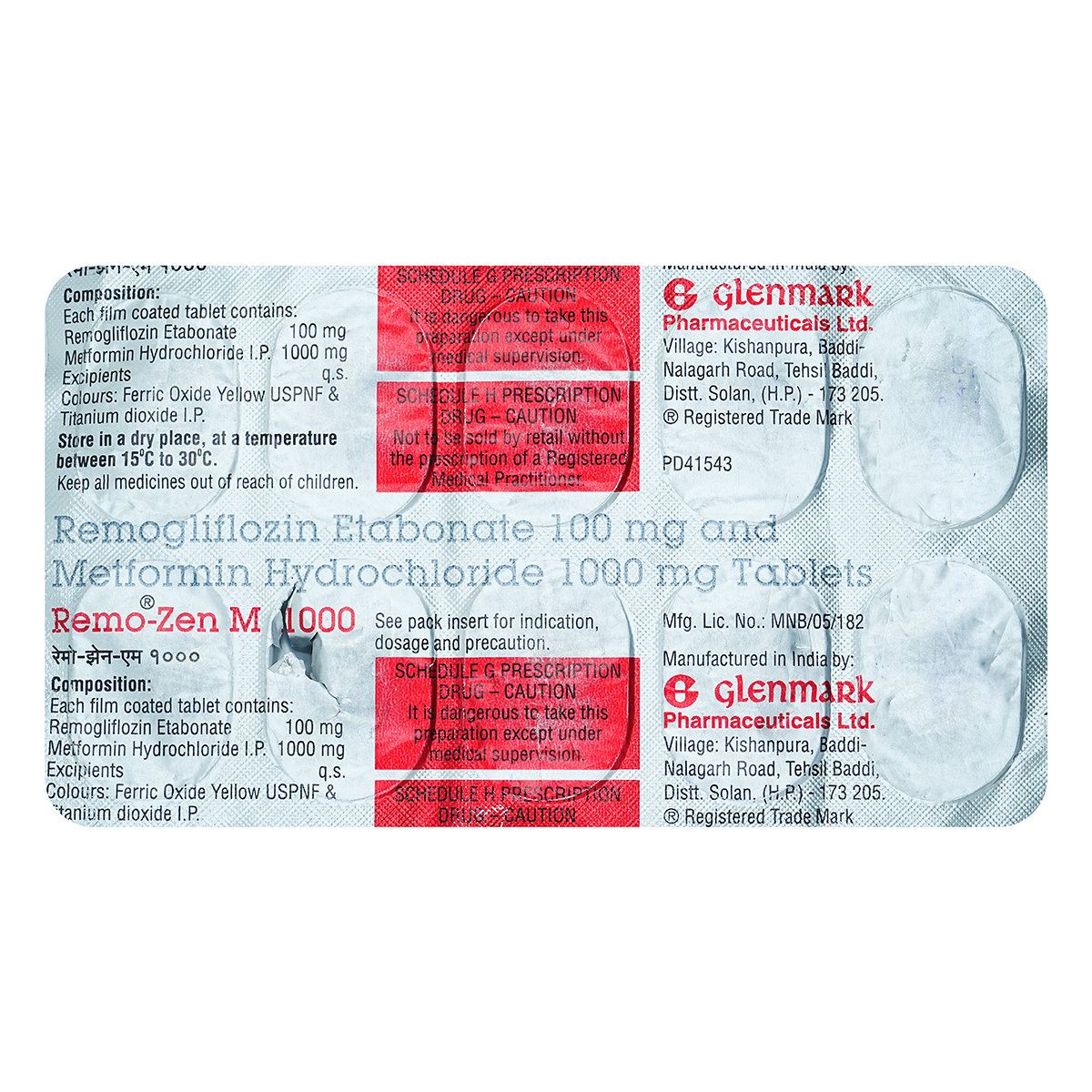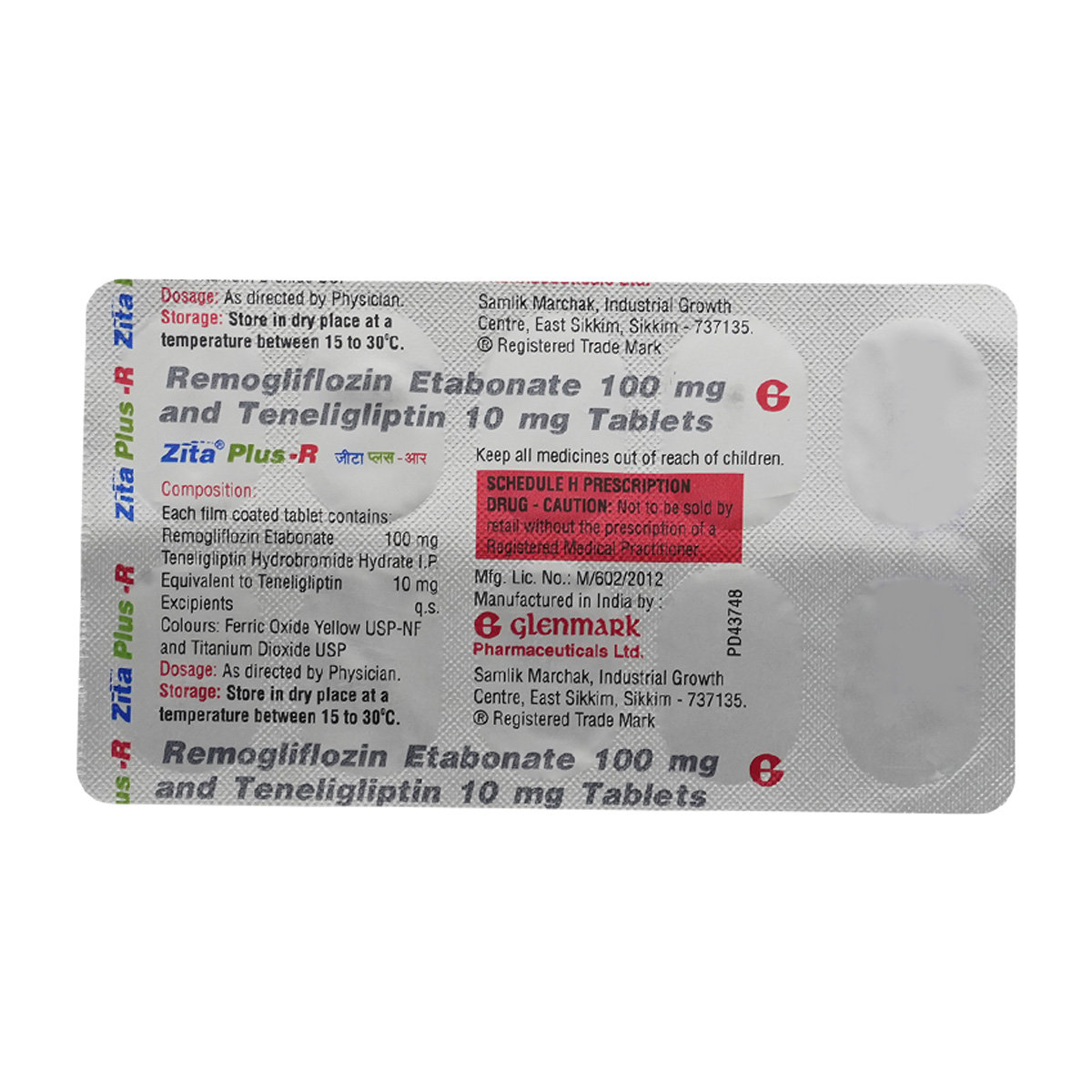Remogliflozin Etabonate
About Remogliflozin Etabonate
Remogliflozin Etabonate is used to treat type 2 diabetes mellitus and non-alcoholic steatohepatitis (non-alcoholic fatty liver disease). It also lowers the risk of heart failure in type 2 diabetic patients with heart disease.
Remogliflozin Etabonate contains Remogliflozin Etabonate, which works by reducing blood sugar levels by eliminating excess sugars from the body through urine. Thereby, it helps improve glycaemic control (control of glucose levels).
Some common side effects of Remogliflozin Etabonate include nausea, frequent urge to urinate, low blood sugar levels, fungal infection in the genital area, and increased thirst. If you notice any side effects that are not manageable, please consult your doctor.
Do not take Remogliflozin Etabonate if you are allergic to any of its components. Before starting Remogliflozin Etabonate, let your doctor know if you are taking any other medicines or have pre-existing medical conditions.
Uses of Remogliflozin Etabonate
Medicinal Benefits
- Remogliflozin Etabonate is used to treat Type 2 Diabetes Mellitus. It contains Remogliflozin Etabonate, which belongs to the class of medicines called SGLT2 inhibitors (Sodium-Glucose Co-Transporter 2 inhibitors).
- It helps lower blood sugar levels by promoting the removal of excess glucose through urine.
- It aids in maintaining stable blood glucose levels, especially after meals and fasting periods.
- By excreting glucose, it may help reduce body weight as part of an overall diabetes management plan.
- Remogliflozin Etabonate helps reduce the risk of heart failure and other cardiovascular complications in patients with type 2 diabetes and existing heart disease.
- It can be prescribed alone or in combination with other anti-diabetic medicines, along with a balanced diet and regular exercise.
Directions for Use
- Remogliflozin Etabonate can be taken with or without food, or as advised by the doctor.
- Follow your doctor's instructions on the dosage and timing of this medication to ensure safety.
- Swallow Remogliflozin Etabonate as a whole with a glass of water.
- Do not chew, crush or break it.
Storage
Side Effects of Remogliflozin Etabonate
- Nausea
- Frequent urge to urinate
- Low blood sugar levels
- Fungal infection in the genital area
- Increased thirst
Drug Warnings
- Avoid taking Remogliflozin Etabonate if you are allergic to any of its components.
- Inform your doctor if you take other antidiabetic drugs to adjust the dosage of Remogliflozin Etabonate accordingly.
- Do not abruptly stop taking Remogliflozin Etabonate midway. Consult your doctor before stopping Remogliflozin Etabonate.
- Remogliflozin Etabonate may cause hypoglycaemia (low blood sugar); hence, it is advised to take healthy food with enough calories and avoid heavy exercises.
- Inform your doctor if you have heart, kidney or liver diseases, breathing problems (asthma, obstructive lung diseases), blood problems like anaemia (lack of blood cells), vitamin B12 deficiency, pancreas problems/surgery, dehydration, alcohol use, low blood pressure, and genital yeast infection before taking Remogliflozin Etabonate.
- Remogliflozin Etabonate should be used only when prescribed by a doctor if you are pregnant or breastfeeding.
- Let your doctor know if you are taking any other medicines, including supplements and herbal products.
Drug Interactions
Drug-Drug Interaction: Remogliflozin Etabonate may interact with antibiotics (Fluconazole), drugs treating impotence (Sildenafil), antidiabetics (Glimepiride), and anticonvulsants (Pregabalin).
Drug-Food Interaction: Avoid alcohol intake since it may increase the risk of low blood sugar levels.
Drug-Disease Interaction: Tell your doctor before taking Remogliflozin Etabonate if you have any heart, kidney or liver diseases, breathing problems, blood disorders, dehydration, alcohol use, low blood pressure, or yeast infection of the genitals.
Drug-Drug Interactions Checker List:
Safety Advice

Alcohol
cautionIt is advised to avoid alcohol intake since it may worsen the risk of developing low blood sugar levels.

Pregnancy
cautionGliflozins are usually not recommended during the second or third trimester of pregnancy. Your doctor may suggest other medications to control your blood sugar levels. Please consult your doctor before starting Remogliflozin Etabonate if you are pregnant or planning to conceive.

Breast Feeding
cautionThere is limited information on how Remogliflozin Etabonate affects breastfeeding. Please seek medical advice for further information.

Driving
cautionYour driving ability may be affected if your blood sugar levels are too high or too low. Do not drive or operate machinery if you also experience blurred vision, dizziness or drowsiness due to extremely low or high blood sugar.

Liver
cautionLet your doctor know if you have any history of liver diseases or hepatic impairment. Your doctor will prescribe Remogliflozin Etabonate only if the benefit outweighs the risk.

Kidney
cautionLet your doctor know if you have any history of kidney diseases. Your doctor will prescribe Remogliflozin Etabonate only if the benefit outweighs the risk.

Children
cautionYour child’s doctor will decide whether to give Remogliflozin Etabonate to children or not.
Habit Forming
Diet & Lifestyle Advise
- Include Vitamin B1-rich foods like beans, legumes, dairy products (such as yoghurt), eggs, meat, poultry, fish, nuts, seeds, thiamine-enriched breakfast cereals, and whole grains in your diet
- Maintain a fibre-rich diet and include healthy carbohydrates from fruits, vegetables and whole grains to maintain your blood glucose levels.
- Eat at regular intervals.
- Keep a check on your weight and exercise regularly to keep your heart healthy.
- Your doctor also guides you on noticing and managing the early symptoms of high/low blood sugar levels.
- Gastrointestinal side effects can be managed with simple modifications in your lifestyle. These include cutting down on sugars and fatty foods, and avoiding carbonated drinks and foods that cause gas.
Special Advise
- It is advised to monitor your blood sugar levels regularly.
- Regular monitoring of kidney functioning is advised while using Remogliflozin Etabonate.
Patients Concern
Disease/Condition Glossary
Diabetes mellitus, also known as adult-onset diabetes, is a metabolic disease that causes high blood sugar levels. It is type 2 diabetes and occurs when the insulin (a hormone produced by the beta cells of the pancreas) is resistant to breaking down glucose to produce energy (insulin resistance) or the pancreas (an organ behind the stomach) produces little or no insulin at all. This disease mainly occurs in people aged above 40 years, but can also occur in childhood based on the risk factors. The treatment includes oral glucose-lowering medicines and insulin shots.
FAQs
Remogliflozin Etabonate is used to treat type 2 diabetes mellitus and non-alcoholic steatohepatitis (non-alcoholic fatty liver disease).
Remogliflozin Etabonate contains an antidiabetic medicine, Remogliflozin Etabonate. It lowers the blood sugar levels in type 2 diabetes mellitus by eliminating excess sugars through urine and thus helps in glycaemic control in diabetic patients.
Remogliflozin Etabonate may cause low blood sugar levels (hypoglycaemia) and can make you hungry, dizzy, irritable, confused, anxious, or shaky. Hence, it is advised to take Remogliflozin Etabonate with a meal. To immediately treat hypoglycaemia, it is advised to eat or drink fast-acting sugar sources like fruit juices, hard candy, raisins, or non-diet soda.
Your doctor may advise Remogliflozin Etabonate with or without other medications to control your blood sugar levels. However, it is advised to maintain a proper diet and exercise to achieve controlled blood sugar levels while using Remogliflozin Etabonate with or without other antidiabetic drugs.
Remogliflozin Etabonate should be used with caution in heart, kidney or liver diseases, breathing problems (asthma, obstructive lung disease), blood disorders (anaemia, vitamin B12 deficiency), dehydration, alcohol use, low blood pressure, pancreas problems/surgery, and yeast infection of the genitals. Inform your doctor in advance if you have any other medical concerns.
Take the missed dose as soon as possible. However, if it is time for the next dose, skip the missed dose and go back to your regular dosing schedule. Do not double the dose.
Side effects of Remogliflozin Etabonate include nausea, frequent urge to urinate, low blood sugar levels, fungal infection in the genital area, and increased thirst. These side effects are not familiar to everyone and vary individually. If you notice any side effects that are not manageable, please consult your doctor.
Do not discontinue Remogliflozin Etabonate without consulting your doctor as stopping Remogliflozin Etabonate may cause a rise in blood sugar levels. To treat your condition effectively, keep taking Remogliflozin Etabonate for the prescribed duration.
No, do not take more than the prescribed dosage of Remogliflozin Etabonate as it does not cause better blood sugar control but might decrease blood sugar levels more than normal leading to hypoglycaemia. Therefore, avoid exceeding the recommended dosage and take Remogliflozin Etabonate only as advised by the doctor.
Remogliflozin Etabonate can be taken before or after a meal, with or without food.
Yes, Remogliflozin Etabonate is effective if taken as advised by the doctor for the prescribed duration.
Remogliflozin Etabonate should be swallowed as a whole with water; do not crush or chew it.
Taking furosemide with Remogliflozin Etabonate may cause unusual thirst, dizziness on standing, and fainting. Therefore, consult the doctor before taking Remogliflozin Etabonate with furosemide.
A haemoglobin A1C (HbA1C) test is used to diagnose type 2 diabetes and prediabetes. It helps measure the amount of blood glucose attached to haemoglobin. It is used to monitor your condition and check how well you've been able to control your blood sugar levels.
Include a diet rich in fruits, vegetables and whole grains like brown rice, whole wheat, oats, barley, and quinoa. Non-fat or low-fat dairy and proteins like chicken, lean meats, nuts, beans, tofu, lentils, eggs, fish, and turkey can also be included.

